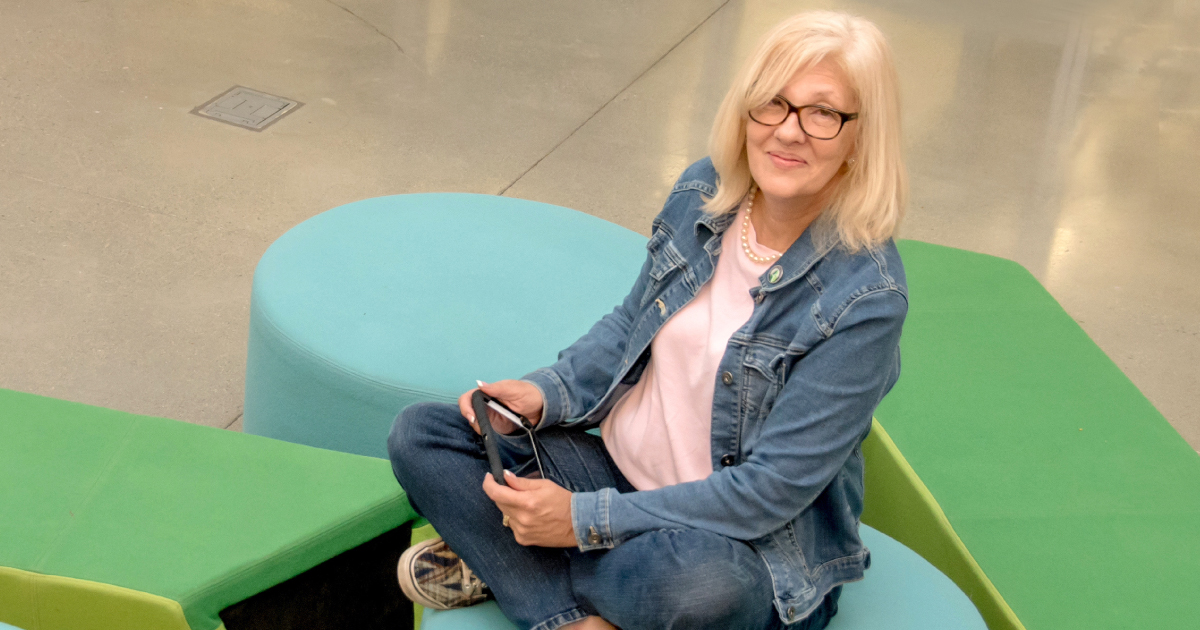How One Founder Transformed Her Pitch and Found Her Voice

Susan Perry is the founder and CEO of SpeechMED, a voice and language platform that reads information to patients in the language they understand. In 2017 and 2018, she participated in the Women Innovating Now (WIN) Lab® accelerator program, built by Babson’s Center for Women’s Entrepreneurial Leadership, where a seminar by Assistant Professor of Entrepreneurship Lakshmi Balachandra transformed how Perry pitches her business.
It’s well-known that women entrepreneurs face challenges securing funding from investors. Professor Balachandra’s research helped Perry understand why. While many people assume entrepreneurs are discriminated against simply for being women, Professor Balachandra’s research shows that what they are actually penalized for is exhibiting stereotypically feminine traits like warmth and sensitivity. Her study of how entrepreneurs are perceived by potential investors didn’t uncover any bias against women with a more gender-neutral or masculine pitching style.
Professor Balachandra’s research led Perry to reevaluate how she pitches her business and adopt a bolder, more assertive approach. Below Perry shares how she’s adapted her pitch and built her confidence as a presenter.
How Professor Balachandra’s Research Transformed Perry’s Pitch
“Being conscious of Dr. Balachandra’s research helped me identify parts of my pitch style that could have a negative impact on moving forward in the investment process. Growing up, my mother raised me to be soft-spoken, which is something I now know I need to avoid in the pitch process. Instead, I lower my voice and speak authoritatively and directly when I’m pitching SpeechMED. I think about body language and how I stand, planting my feet firmly on the ground, which creates comfort and confidence in the room. Before, I came across as timid and soft-spoken and I wasn’t rewarded for it. Now I’m a much more assertive entrepreneur who comes across as confident about my startup.
“I realize women entrepreneurs shouldn’t have to adjust their behavior to raise money, but this research allows us to be aware of what works and what doesn’t. I certainly understand if a female founder doesn’t want to make changes to her style, but I am proof that making adjustments can work. I utilized my new approach over the last few months and, as a result, was accepted in the highly competitive gener8tor accelerator program, which only takes 1 percent of applicants. I feel strongly that I wouldn’t have gotten in had I not taken Dr. Balachandra’s research into consideration.”
Presenting a Bold Vision
“Research shows that we don’t get the same questions from investors as men. We get very preventive, defensive questions. [Editor’s note: Studies show that investors are more likely to ask male entrepreneurs questions about potential gains and benefits while asking women entrepreneurs about potential losses and risks.] By being aware of this research, you can redirect from a narrow defensive question to a much more expansive response. I try to avoid focusing on assuring investors that I’ve done all of the preventative things. There’s a time and place for that—probably during due diligence—but in the pitch, I want to focus on things like the impressive size of our market and the traction that I see in our future.
“My experience is that, as women, we want to collaborate and calm people’s fears, but we are not rewarded for that when we’re pitching. We’re rewarded for thinking boldly and being comfortable with risk. When you’re talking about a risky investment, investors want to know that the entrepreneur driving the startup can be aggressive and take intelligent risks. Now I am sure to demonstrate that when I am pitching.”
Uncovering Her Natural Self
“Dr. Balachandra’s research asks women to hone parts of our authentic selves that we can bring out in the pitch room. Society often trains us to be someone we are not, adopting behaviors that align with social norms. I believe that women are natural risk-takers and are just as likely and capable as men to be bold in what we do, but because we are sent consistent messages that it isn’t acceptable to act that way, we adjust and end up hiding parts of who we really are. Dr. Balachandra’s research is not training us to be anything that we aren’t; instead, it’s really about understanding our natural selves.”
Making Pitches Bolder and More Confident
“If you need someone in your corner to help with adjusting your pitching style, I would suggest reaching out to mentors and role models who demonstrate confidence. At the beginning of building my company, I was a nervous public speaker. So each time that I got on stage, I envisioned a good friend who always showed great confidence when she spoke to an audience. I would imagine myself as her for a period of time and visualize how she would give a pitch. I was able to pretend until it finally became a part of who I was.
“Another thing that really helped me hone my pitching style was joining an accelerator like WIN Lab. First of all, I would not have been exposed to this research if I hadn’t participated in the program. And second, there was a huge sense of empowerment that came from being surrounded by women entrepreneurs. It gives you the confidence to step out and do just about anything—including mastering a pitch.
“If you’re a female founder looking for investment, I encourage you to look at Dr. Balachandra’s research and see how it might help you move the ball forward in your raise. I would never advocate that someone pretend to be what they’re not, but I would encourage you to identify the parts of your authentic self that you can bring forward to help you pitch with confidence and success.”
Note: This interview was conducted in July 2018. It has been edited, condensed, and reorganized for clarity and flow.



